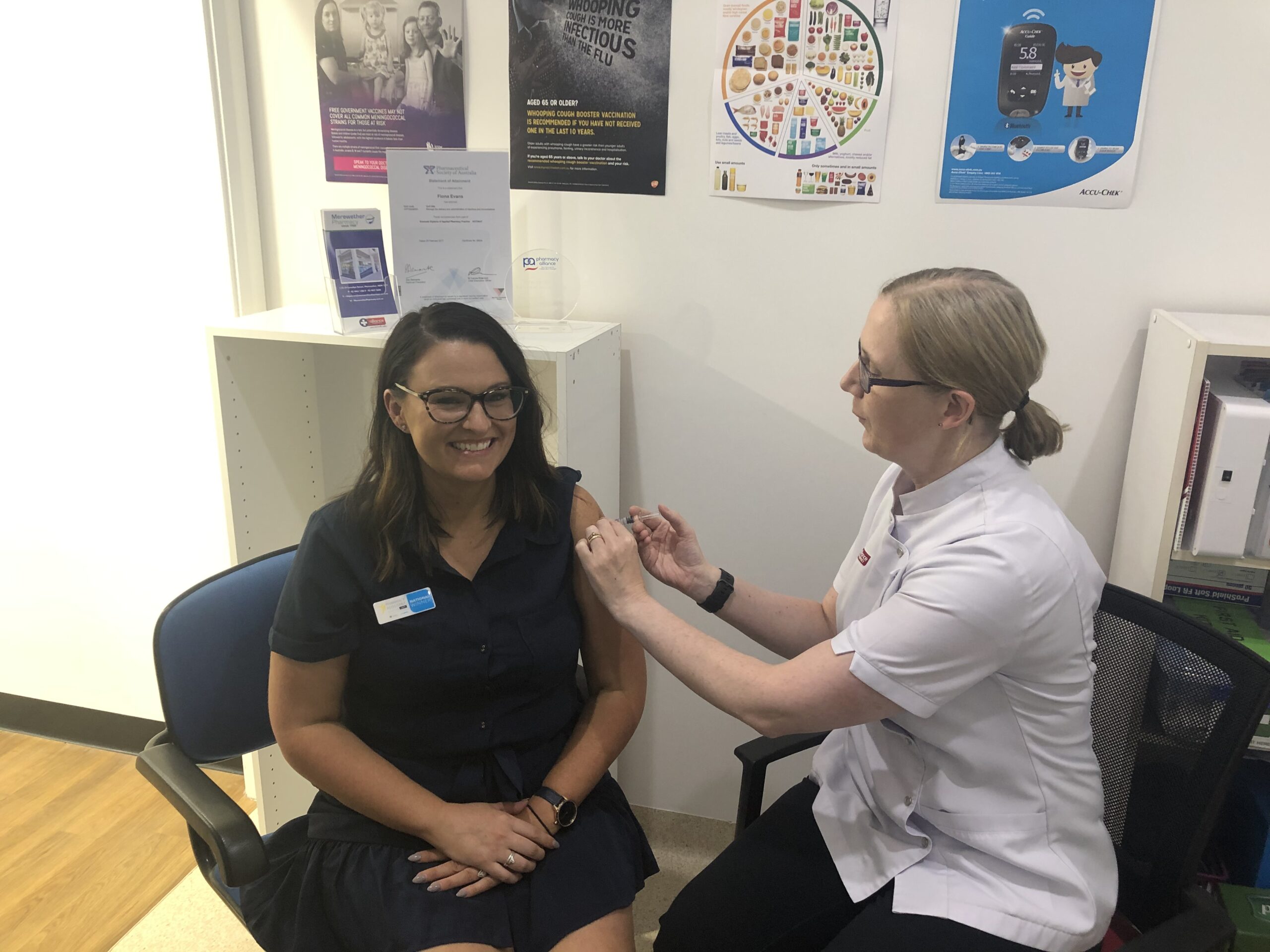
By Brianne Lowe, 2019 Pharmacy Guild of Australia/Maxigesic Pharmacy Assistant of the Year
I’m not going to lie; I did a lot of research for this article. I was astonished to learn that on average 2,800 people die from influenza and/or pneumonia every year in Australia. Considering that the flu vaccination is readily accessible in our country and we even offer it for free to those that are considered high risk, this statistic surprised me. After the recent Coronavirus outbreak, you would have already encountered concerned members of the public seeking guidance and advice in regards to protecting themselves and their loved ones from contracting the virus. With this in mind, I believe we are leading into what will be a busy time in pharmacy for flu vaccinations and other forms of prevention. Whilst conversations around any vaccinations can be tricky to navigate, I have always found it best to stick to the facts.
Who should get a flu shot?
Essentially everyone who is eligible should receive a flu vaccination. However there some people in our community who are deemed high risk and should receive a vaccination as a necessity, including:
- People over the age of 55
- Aboriginal or Torres Strait Islanders
- Pregnant women
- Anyone with a serious health condition like severe asthma, diabetes, chronic heart and kidney disease and other chronic conditions.
The majority of the above candidates will receive a flu vaccination via their GP. However, there are several other categories of people who should also consider getting a flu vaccination and who may be able to receive one in their local pharmacy, including:
- Family members who are welcoming a newborn baby
- Workers in aged care and childcare facilities
- Anyone who works in the health care industry
Selfcare tips for your customers
Keeping in line with the prevention strategy, it is a good idea to engage your customers with selfcare tips to help prevent them from contracting and spreading a nasty virus. This includes:
- Regular hand washing with warm soapy water before eating or touching your face
- Cleansing surfaces including work benches, mobile phones, keyboards, door handles and railings
- Sneezing and coughing into tissues and discarding immediately
- If you do become unwell isolating yourself from others to stop the spread is recommended
- Taking clinically proven immune boosting therapies
Flu Myths and fallacies
Whilst everyone is rushing out to purchase surgical masks and hand sanitizer, when it comes to getting the jab as a preventative measure everyone has their own excuse as to why they don’t get one. Some myths include:
You can get the flu from the flu shot: FALSE! Some people report tiredness, pain, fever and muscle aches after receiving a vaccination. This is just the vaccine triggering an immune response and only lasts a day or two.
You can catch the flu from being cold and I stay indoors: FALSE! Although cold and flu season coincides with winter it is not caused by the weather. The only way to catch the virus is to come in contact with it which is more likely if you are spending the cooler months inside in close proximity to others.
Fit and healthy people don’t need to be vaccinated. I never get sick: FALSE! Viruses do not discriminate and even the healthiest of people can contract influenza. We also rely on herd immunity to protect those around us who are more vulnerable.
If your pharmacy is going to be administering vaccines, you should start to think about how you will be marketing to your customers. Be proactive and send out an email, post on your social media pages and even contact customers via SMS to let them know they can book in now and you will contact them when the vaccines arrive. Consider contacting your local childcare centres, schools and aged care facilities as it will be important that their staff are vaccinated to protect those around them who may be more vulnerable. Lastly, are YOU planning on having a flu vaccination? In pharmacy we come into contact with some of the most vulnerable members in our community and some of the nastiest virus too! We too should be taking preventive measures to not only protect ourselves, but those around us and our loved ones.

